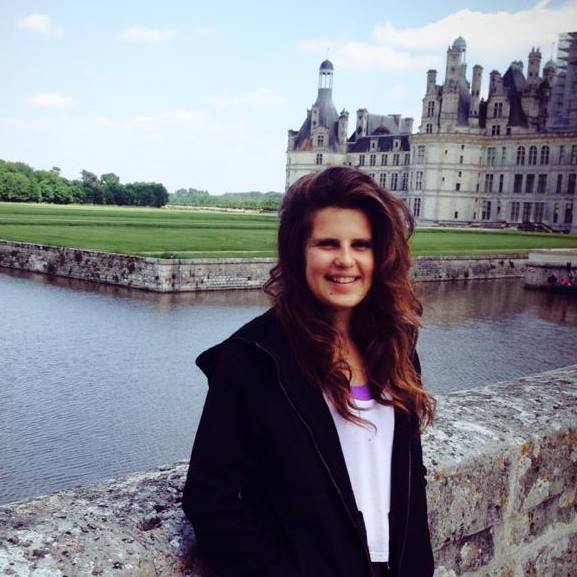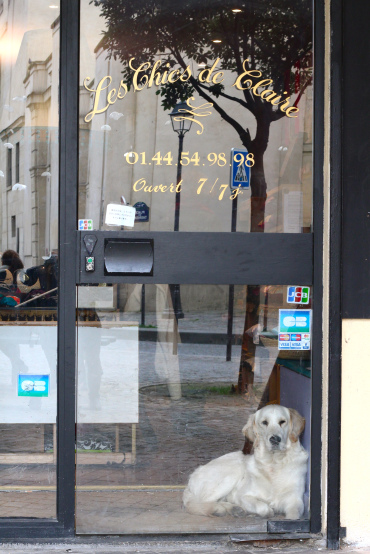 |
| Emily Ralston is a recent graduate of Chapman University in Southern California, where she majored in Political Science. She studied abroad with CEA in Paris in the spring of 2014. |
1. What is your current role?
I am an “Assistant de Professeur d’Anglais” (and English teaching assistant) in a lycée (high school) in Colomiers, a large suburb of Toulouse, France. The program I am participating in is through “TAPIF” which facilitates the largest youth mobility program between France and the United States. I am one of over a thousand English teaching assistants but, in total, there are over 4,500 assistants teaching English, Spanish, German, Portuguese, etc. My main objective is to have students practice speaking English and encourage a cultural dialogue of sorts. I bring up subjects like travel, study abroad and differences between the French and American schooling system.
2. What do you enjoy about your role?
I never really thought of myself as a teacher but I have always loved learning. It’s exciting to be able to plan lessons around subjects that interest both my students and me. I enjoy hearing their perspective on topics that might seem banal to Americans (like going to college for example). I am learning alongside my students, which I enjoy immensely.
3. Why did you choose to study abroad?
I have always had an interest in the world. There are a plethora of problems in the world that no one nation or group of people can solve. These issues demand collective cooperation and I see study abroad as the first step in opening oneself to the possibilities of the international. In retrospect my time studying abroad has served as a fundamental pillar in my education as well as a catalyst for deepening my interest in international politics.
4. Did your career goals change after studying abroad?
At 22 (ok, almost 23), I am still unsure of my “career goals.” I would like to better the world, I would like to continue to travel. Study abroad cemented what I was passionate about prior to my year in Paris with CEA: international exchange and the French language.
5. Did your study abroad experience contribute to your current role or professional life?
A large reason I chose to study abroad in Paris for a year was to further my language skills and immerse myself in local culture. These experiences gave me the tools to navigate the move to Toulouse in a much smoother manner. I am familiar with the French banking system, the immigration paper(s) process, and of course, my language skills are much improved from my initial year in Paris two years ago. As a core element of my current role is to encourage cultural exchange. I feel that study abroad enabled me to better understand what interests my students and the stereotypes they might already have about Americans!
 |
| A golden retriever watches passersby in a shop window. |
6. What’s one piece of advice you would give to students who are studying abroad now?
Break out of your friend group. It’s nice to have the comfort of established relationships, especially when one is in a (literally) foreign place. However, you might miss out on some of the best aspects of wherever you are if you don’t put yourself in some culturally intimidating situations. Check out what’s happening at the local universities, get a small side job as a nanny for a local family, take a walk alone in the park, you never know who you’ll meet!
7. What is one piece of advice you would give to study abroad alumni who are searching for opportunities abroad?
There are lots of opportunities especially if you are a native English speaker. Teaching, nannying, working in the tourism industry, search and you will find. It never hurts to send cold emails, ask friends, and/or call on contacts that you might have established while studying abroad. Be persistent! There’s also interesting short term options like WWOOF’ing that can help quench post-study abroad wanderlust.
8. What has been the biggest challenge about working abroad?
Paperwork, paperwork, and more paperwork. In France, in particular, there are lots of formalities one has to go through while working in the country. I’m sure it’s less intensive in comparison to other countries (like the USA) but it is time intensive and repetitive. Small price to pay however!
Amy Johnson is a recent graduate of the University of Arizona, where has has a dual degree in Journalism and Anthropology. She studied abroad with CEA in Paris in the spring of 2014.







